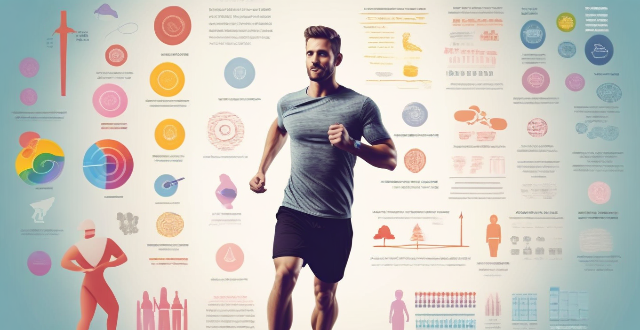Sports culture significantly influences societal perceptions of health and fitness by promoting physical activity, raising health awareness, fostering mental well-being, challenging stereotypes, and driving economic growth in the health and fitness industry. This multifaceted impact enhances individual lives and contributes to the overall well-being of communities and nations worldwide.

The Influence of Sports Culture on Society's Perception of Health and Fitness
Sports culture, which encompasses the values, practices, and beliefs surrounding physical activity and athletic competition, plays a significant role in shaping society's perception of health and fitness. This influence is multifaceted, affecting individuals, communities, and even global attitudes towards well-being.
Promoting a Healthy Lifestyle
Encouraging Physical Activity
- Role Models: Athletes serve as role models, inspiring people to engage in sports and maintain an active lifestyle.
- Community Programs: Local sports programs foster community involvement and provide accessible opportunities for physical activity.
- Media Coverage: Media attention on sporting events highlights the benefits of physical fitness and encourages viewership to partake in similar activities.
Raising Health Awareness
- Educational Campaigns: Sports organizations often partner with health institutions to promote awareness about the importance of exercise.
- Celebrity Endorsements: Celebrities from the sports world endorse products that promote health, such as sports drinks and nutritional supplements.
- Health Challenges: Events like fun runs or charity walks organized by sports clubs raise funds while promoting health consciousness.
Fostering Mental Well-being
- Stress Relief: Participating in sports is known to reduce stress levels and improve mental health.
- Teamwork and Social Interaction: Team sports encourage social interaction, which is crucial for emotional well-being.
- Goal Setting: Sports teach individuals to set and achieve goals, contributing to a sense of accomplishment and self-esteem.
Challenging Stereotypes
Breaking Gender Barriers
- Equal Opportunities: Modern sports culture advocates for equal participation regardless of gender, challenging traditional stereotypes.
- Women in Sports: Successful female athletes break barriers, normalizing women's involvement in what were once considered male-dominated activities.
- Gender Equality Promotion: Major sporting events often include discussions on gender equality, further promoting inclusivity.
Overcoming Age Restrictions
- Age is Just a Number: Senior athletes defy age stereotypes by competing at high levels, proving that fitness knows no age limit.
- Adaptive Sports: Parasports showcase the ability of individuals with disabilities to participate fully in sports, redefining notions of ability.
- Lifelong Fitness: Promotion of lifelong fitness initiatives encourages older adults to stay active, combating ageist assumptions about capability.
Economic Impact on Health and Fitness Industry
Consumer Spending
- Fitness Products: As interest in sports grows, so does the demand for related products like equipment, apparel, and technology.
- Health Services: Increased awareness leads to more investment in health services, including gym memberships and personal training.
- Nutrition Market: A focus on performance nutrition boosts the market for health foods, supplements, and specialized diet plans.
Employment Opportunities
- Job Creation: The growth of the sports industry creates jobs in coaching, event management, and sports medicine.
- Professional Pathways: Careers in sports science, nutrition, and therapy become more prevalent as these fields gain recognition.
- Volunteer Work: Sports events rely heavily on volunteers, providing opportunities for community members to be involved.
Tourism and Local Economy
- Sporting Events: Major sporting events draw tourists, stimulating local economies through hotel stays, restaurant visits, and other expenditures.
- Urban Development: Cities invest in infrastructure like stadiums and parks to attract sports enthusiasts and promote healthy living.
- International Competitions: Global competitions like the Olympics highlight host countries' commitment to health and wellness.
In conclusion, sports culture significantly impacts how society views health and fitness by promoting physical activity, raising health awareness, fostering mental well-being, challenging stereotypes, and driving economic growth in the health and fitness industry. Through these various facets, sports culture not only enhances individual lives but also contributes to the overall well-being of communities and nations worldwide.